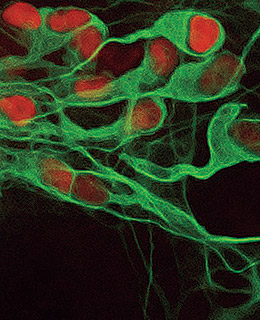
Score one for the scientists. Seven years after the Federal Government banned the use of most embryonic stem cells, investigators have found ways to generate stem cells without using politically and ethically charged embryos at all. For the first time, scientists at Harvard developed motor neurons from a patient with Lou Gehrig's disease, using just some skin cells and four genes. And in another first, their colleagues managed to generate insulin-producing cells from pancreatic cells simply by manipulating the two to switch identities, bypassing the stem-cell step altogether. Both are research milestones that also make it possible for scientists to watch diseases unfold in a petri dish and eventually, they say, develop new cures.